Stories
Learn more about education equity from people across the region who are closest to the issues.
Education Environment
Dr. Nicole Evans and Dr. Howard Fields
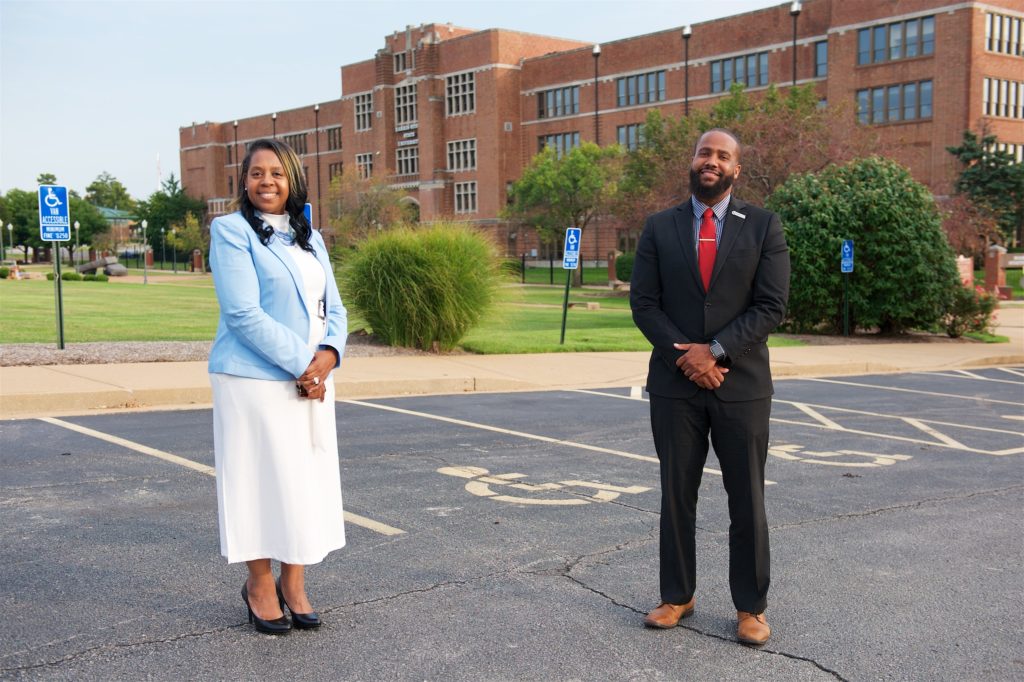
“We’re not looking enough at the impact race is having in school systems. Race-based incidents are going to continue to happen in schools, particularly in predominantly White institutions. How are we supporting our students when this occurs? This is part of the reason I worry about underrepresented students, regardless of if they are in an urban, rural, or suburban school. Between microaggressions, blatant acts of racism, sexism, and other barriers that may be a result of their ability or family resources, we are perpetuating a system that normalizes traumatic experiences that occur in our schools. When students have to deal with slurs from other students as a result of their race, gender, sexuality, or any of their social identities, we must ask, how are they going to deal with the hurt and pain years down the line?”
Click here to read the full conversation between Dr. Nicole Evans and Dr. Howard Fields.
Property Taxes
Dara Eskridge and Colin Gordon
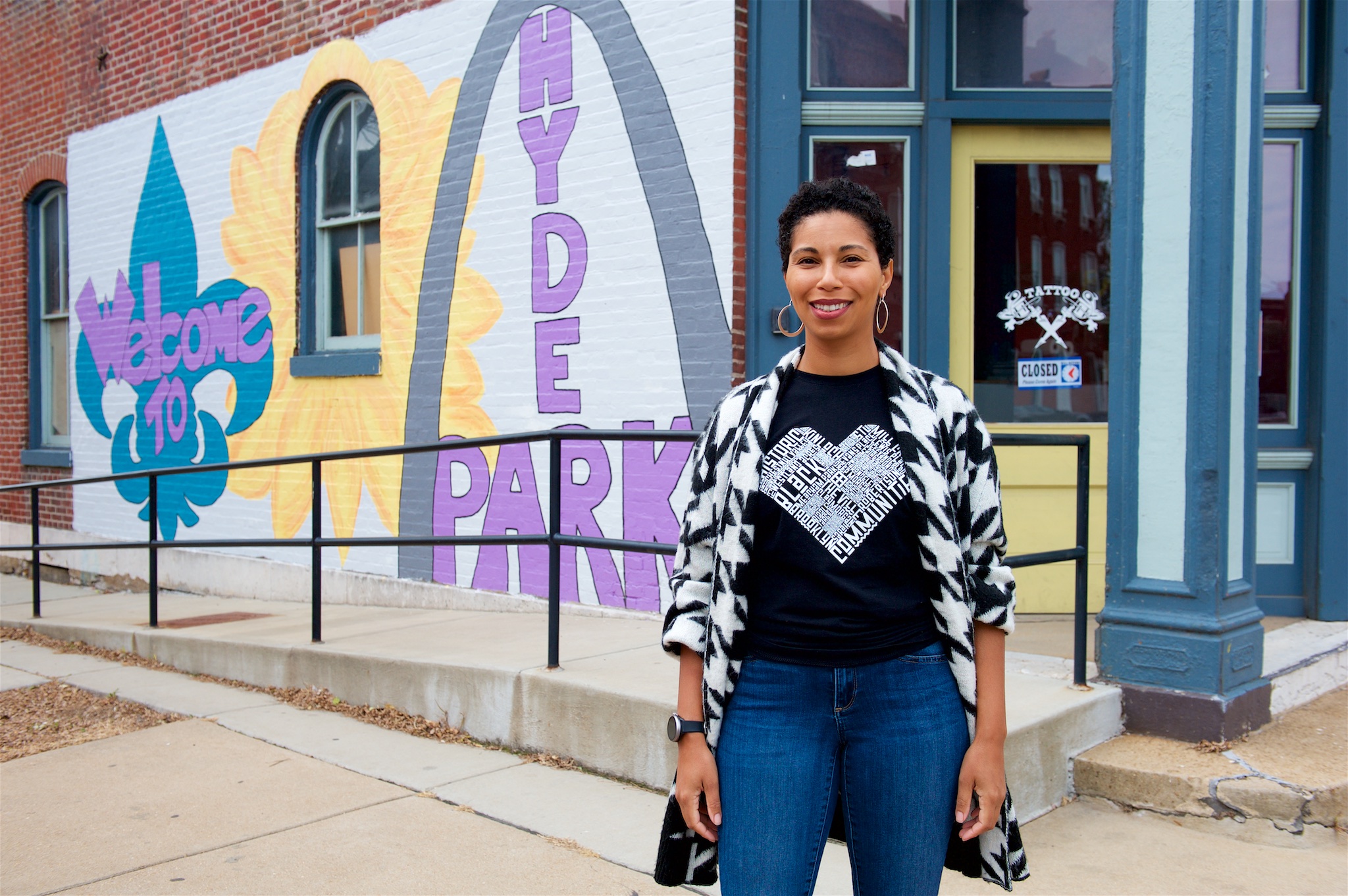
“We are condemning schools to being under-resourced and of lesser quality because we’re tying it to property values of neighborhoods or of a place. And then the property values are historically tied to where Black people are or are not. So we’re creating this terrible cycle that says Black children are undeserving of high-quality, high-resourced educational experiences and supporting that stance with the continued devaluation of properties in Black neighborhoods.”
Click here to read the full conversation between Dara Eskridge and Colin Gordon.
Funding
Dr. Courtney M. Graves and Dr. Amanda L. Purnell
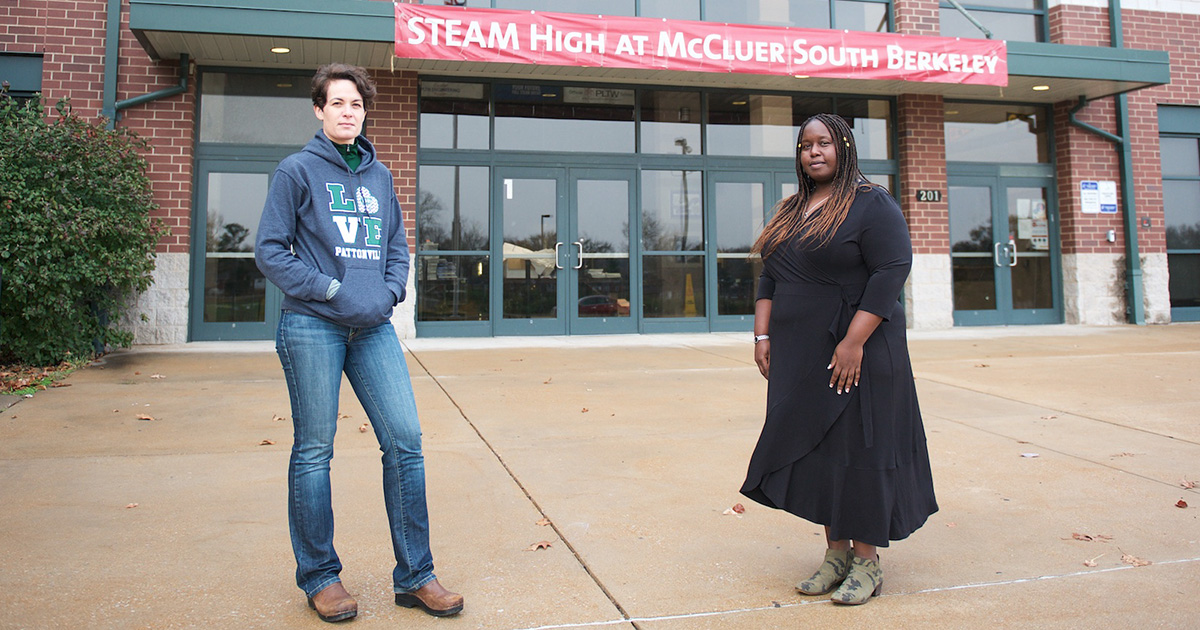
“The way we fund schools is deeply problematic and I feel like I could just mic drop with that. It’s unfair that some are having to build relationships with anybody they can find and there are others whose families and wonderful little foundations are basically funding the school. It is a real problem and kids 100% see that difference. They can have pride and know, “Hey, we’re scrappy. We’re figuring this out.” At the same time, they see how other children have things just handed to them and provided for them. There have been efforts across the St. Louis region and there are so many wonderful, amazing, committed, social justice warriors trying to figure out how to reduce the inequities among school districts. At the same time, I hear and understand how every parent thinks to themselves, “I want my child to have everything.” That totally makes sense. So when there’s this belief of a zero-sum game, where if another child is offered more, then that means my child gets less — when people think that way, it’s so difficult to engage in a deep conversation around equity. And there are people willing to go there who say, “I got my child and I’m going to give this to another child.” But that is not every parent. And to ask parents to do that is so crazy. So the fact that individual parents and school districts have to do this rather than there being structures set up to support every child in an equitable fashion, that just breaks my heart.”
Click here to read the full conversation between Dr. Courtney M. Graves and Dr. Amanda L. Purnell.
SEGREGATION
Terry Harris and Dave Leipholtz
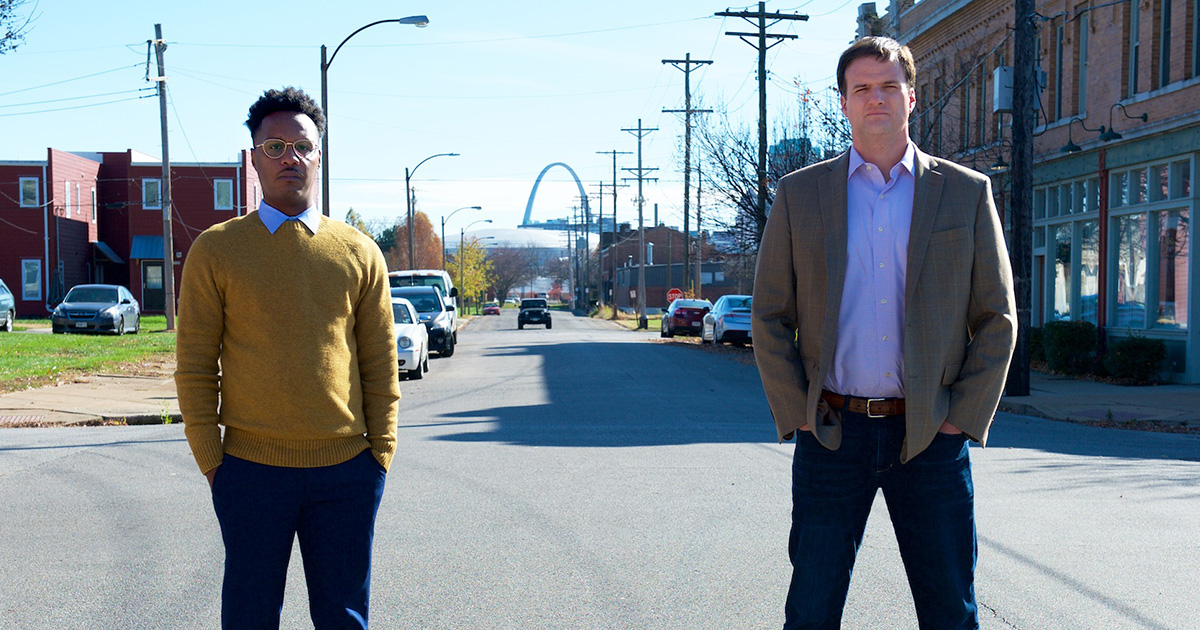
Click here to read the full conversation between Terry Harris and Dave Leipholtz.
Education Environment
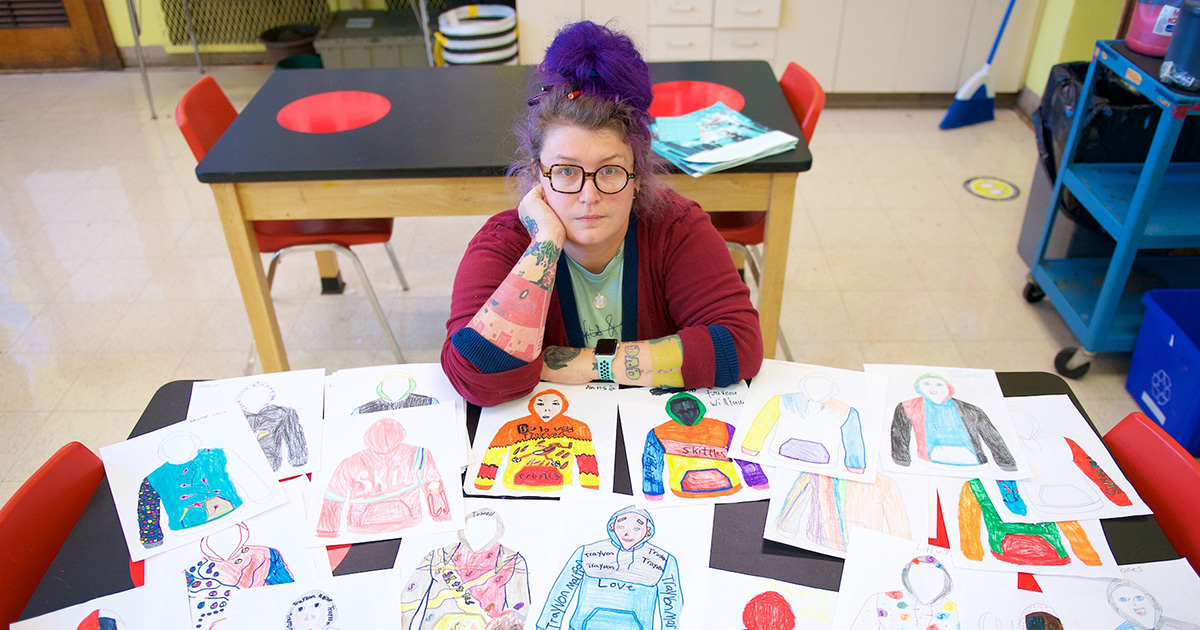
Usually, kids don’t realize the inequity unless they’ve attended school at other schools. Unless they’ve gone to school on the South side or went to school South of Delmar, they don’t really know. They hear, but they don’t see how different it is until maybe they go to summer school somewhere. Well, all of a sudden, I remember talking to this 5th grader from Columbia. It was the end of the day, and he was like, “Yo, Miss Tate. This school is hella nice. They got everything. They got a real nice garden. Their gym is real nice.” He immediately picked up on the fact that the building was taken care of better and everything was nicer. He was like, “Even the bathrooms are nice.”

